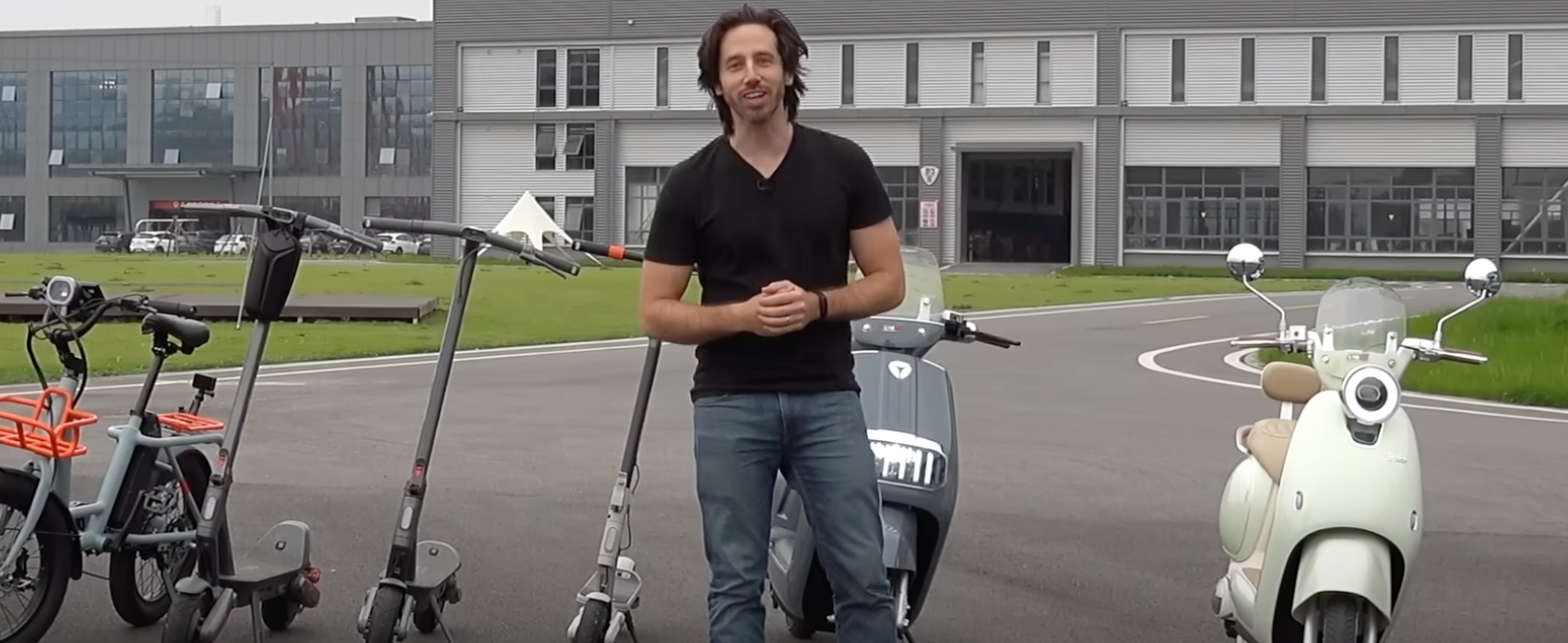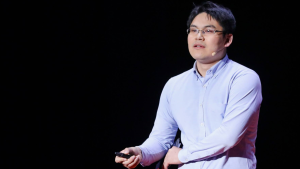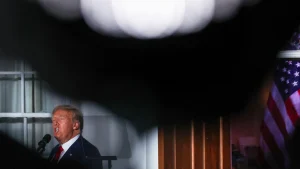A YouTuber in the Aftermath of Accusations of Chinese Government Propaganda
Two months ago, an American blogger visited eight Chinese electric bicycle factories. He faced skepticism from foreign netizens: "Did he receive money from China?" Chinese netizens were puzzled: "Is this overestimating the Chinese Communist Party's propaganda budget, or underestimating the strength of Chinese manufacturing?"

Two months ago, the founder of the U.S.-based electric vehicle Youtube channel “EbikeSchool” visited China, toured eight electric scooter factories and shared a few videos online as usual. His clips included traveling on high-speed trains, staying in hotels, and dining at restaurants in China-nothing he wouldn’t share during his other trips, and mundane to someone with basic knowledge of China.
But this seemingly “boring” video soon gained widespread attention, garnering over 1.78 million views and more than 4,500 comments. The video has sparked such heated debate to the point that the creator felt the need to address the criticisms directly. Here is what he posted in response to all the speculation:
“A few answers to the frequently asked questions I’m seeing:
1. How much did the government pay you? Answer: Nothing, I was paid $0 to make this video. I just took a private trip to China and brought my cameras.
2. Was this a government-sponsored trip? Answer: No, I chose the factories I wanted to visit and a Florida-based bicycle trade group helped me with connections. I’m just a private guy with a few cameras.
3. What if the factories hid the stuff they didn’t want you to see? Answer: They probably did.
4. Why aren’t you eating meat? Answer: Health and environmental reasons. Why does what I eat bother you so much?
5. Why didn’t you go to a labor camp? Answer: Because my channel is about bikes, so that’s what I went to see. When I visit the U.S. for videos, I don’t go film child labor abuses or the lack of affordable healthcare.
6. Why do you support the CCP? Answer: I don’t. I ride bikes.
I hope this helped answer any burning questions!”
 The blogger visited the Chinese electric bicycle manufacturer Yadea and took a ride with employees from the company’s PR department.
The blogger visited the Chinese electric bicycle manufacturer Yadea and took a ride with employees from the company’s PR department.
Admittedly, the video does a fair job of displaying the strength of Chinese manufacturing. Many of these factories supply core components to well-known Western electric bike brands. The workshops in the video are clean and organized, their cafeterias serve a variety of meals, the electric bikes are stylish, and test facilities look pretty cool.
 Video screenshot
Video screenshot
 Video screenshot
Video screenshot
 Video screenshot
Video screenshot
 Video screenshot
Video screenshot
 Video screenshot
Video screenshot
However, accusing “EbikeSchool” of doing the CCP’s propaganda work seems quite odd, considering how China’s electric bike industry ranks low on its industrial ladder, dwarfed by all the advancements made in other industries such as electric cars, semiconductors, and even robotics. This YouTube vlogger’s experience has therefore surprised many Chinese viewers.
Ning Nanshan, a Chinese industrial vlogger with millions of followers, commented on the vlogger’s experience, stating, “Even today, average Westerners still hold a negative image of China as poor, backward, and closed off.”
On China’s largest political website, Guancha.cn, over 27,000 readers have read about this vlogger’s experience, with more than 400 comments—exceeding the typical engagement rate for 90% of articles on the site.
We’ve gathered some of the most upvoted comments to see how Chinese readers view the situation. Most of the discussions revolved around the power of movies, information cocoon, internet trolling and cognitive inertia. Let’s dive in.
A: The Power of Movies
One group of Chinese readers holds artistic works accountable for perpetuating a false image of China,while others consider these works to have limited influence.
@guan_15926247762244 (871 likes)
“Thanks to Chinese filmmakers! Thanks to them!”
Editor’s note: It’s an ironic comment on the significant portion of Chinese films that win awards abroad which set their stories in poor or chaotic regions of China. This has sparked debates in the Chinese-speaking internet about whether “Chinese directors have purposefully chosen stories that cast Chinese in a negative light to cater to overseas tastes.”
Examples:

• Red Sorghum won the Golden Bear at the 38th Berlin Film Festival in 1988.

• The Story of Qiu Ju won the Golden Lion at the Venice Film Festival in 1992.

• Still Life won the Golden Lion at the 63rd Venice Film Festival in 2006.

• Black Coal, Thin Ice won the Golden Bear at the 64th Berlin Film Festival in 2014.
@快乐生活 raised a different opinion:
“Sure, these are poor areas of China, but showing their survival struggles isn’t inherently wrong.”
“In U.S. movies, politicians are often mocked. Hollywood even made Abraham Lincoln: Vampire Hunter and Abraham Lincoln vs. Zombies in the same year as the movie Lincoln!”
@zheng20 responded:
“The examples you mentioned are of a very different nature than the Chinese movies in quesion. Mocking politicians is part of America’s political show, just as we enjoy bashing officials.
To draw the proper paralel, it would be as if American filmmakers made films about how a homeless person who falls into drug addiction and gang fighting with politicians and governmental officials stand on the sidelines indifferently. The films would conclude by placing the blame for all darkness on capitalism. If such film won awards in Asia, that would be the proper parallel… Of course, no Western director would dare to do so”
@h20j20 (18 likes) doesn’t believe that films hold as much influence:
“Don’t think every foreigner is watching Chinese films. Most of them probably haven’t seen more than two in their lifetime. They just want to see a poor and backward China, and select the films and news that satisfy this expectation.
Google Maps shows street views of the entire world, yet how many Westerners use it to refresh their impression of China?”
B: The Unbreakable “Information Cocoon”
Aside from movies, another term frequently mentioned in the comments is the “information cocoon.” However, users have different interpretations of its cause.
@leeuk(417 likes):
“They choose to live in an information cocoon, what can we do about it?”
@白马菜农(13 likes):
“It’s not entirely the information cocoon. I once spoke with a Chinese person who moved to the U.S. long ago. This person wasn’t anti-China, but when I shared objective facts, they thought I was brainwashed or paid by the government. If that happens with them, imagine how it is for regular Westerners.”
@搞机械的如若(113 likes):
“When it comes to perceptions, no one can do anything about it; they’ll wake up when they get hit hard enough. The Qing Dynasty only woke up after foreign invasions.”
@回笼觉主(13 likes):
“The West’s ‘information cocoon’ is just a fragile shell. Breaking through is simple—send our warships to the Atlantic or participate in military exhibitions in Europe. That will burst the bubble quickly.”
C: Internet Trolling
There are also a significant number of Chinese readers who brush aside the attack on “EbikeSchool” as internet trolling which doesn’t represent how majority of Westerners think of China.
@河豚(19 likes):
“U.S. trolls mainly target China and Russia. Any video reflecting the reality of China would attract this kind of attack.”
@tiger2004:
“This isn’t surprising. Travel vloggers often face comments like ‘How much did the Chinese government pay you?’ or ‘Was your trip sponsored?’ on YouTube.”
@二马姥爺(6 likes):
“No, no, no. It’s not ‘most Westerners,’ just a small group of online bullies, like our own internet trolls. They don’t represent the majority.”
D:Western cognitive inertia
Some Chinese readers believes false report on China from the West stem from a superiority complex that they refuse to shed in the face of China’s rise.
@guan_16479181252471:
“An impoverished noble woud never respect a well-off commoner.”
@黑客行:
“It’s not that Westerners still think of China as poor and backward—they need to believe it, or their sense of superiority collapses.”
@我真是个笨蛋(9 likes):
“Ignorance and prejudice are not the same. For example, most Chinese people don’t have a clear idea of what Iceland is like. That’s simple ignorance, but we don’t hate or reject Iceland.
In contrast, Western views on China are driven by certain media narratives, making them believe China is a backward, authoritarian country. Breaking through ignorance is easy, but overcoming prejudice is hard.”
@如胜7523658 (56 likes):
“It’s like during the Ming Dynasty when Chinese thought of Europe as a barbaric place.”
Among these 400+ comments, some step away from the issue itself and take a look at the bigger picture:
@大白兔面包
“Aren’t there also many Chinese people speculating Western propaganda? Anytime someone mentions something positive about the West, they face all kinds of accusations here too…”
@相见欢:
“The ‘information cocoon’ goes both ways. Strange questions similar to those directed at the youtuber can also be found in this comment sections.”
@陈涉 quoted Joseph Goebbels’ propaganda philosophy:
“The purpose of propaganda is to lead the masses, making them think and act according to our will.”
“As long as we continue to create enemies, the people will support our war.”
“Our propaganda must be simple and clear so that even the most foolish can understand it.”
“A good lie is more powerful than a hundred bad truths.”
“If you tell a lie, make it a big one, so people will believe you.”
“Propaganda is not to persuade people, but to keep them firm in their beliefs.”
“As long as we control the media, we can control the people.”
“Through repetition and persistence, even falsehoods can become truths.”
“War is merely the continuation of propaganda.”
@CloudEastWind:
“This is the result of media and information control. On one hand, China is portrayed as poor and backward; on the other hand, there’s the ‘China threat.’ What a contradiction!”
In conclusion, we must admit the challenges of escaping the “information cocoon” due to the limited personal experience for either Chinese or overseas internet users. But at the end of the day, strength speaks, louder than any videos do,propaganda or not.
Editor: Zhongxiaowen



